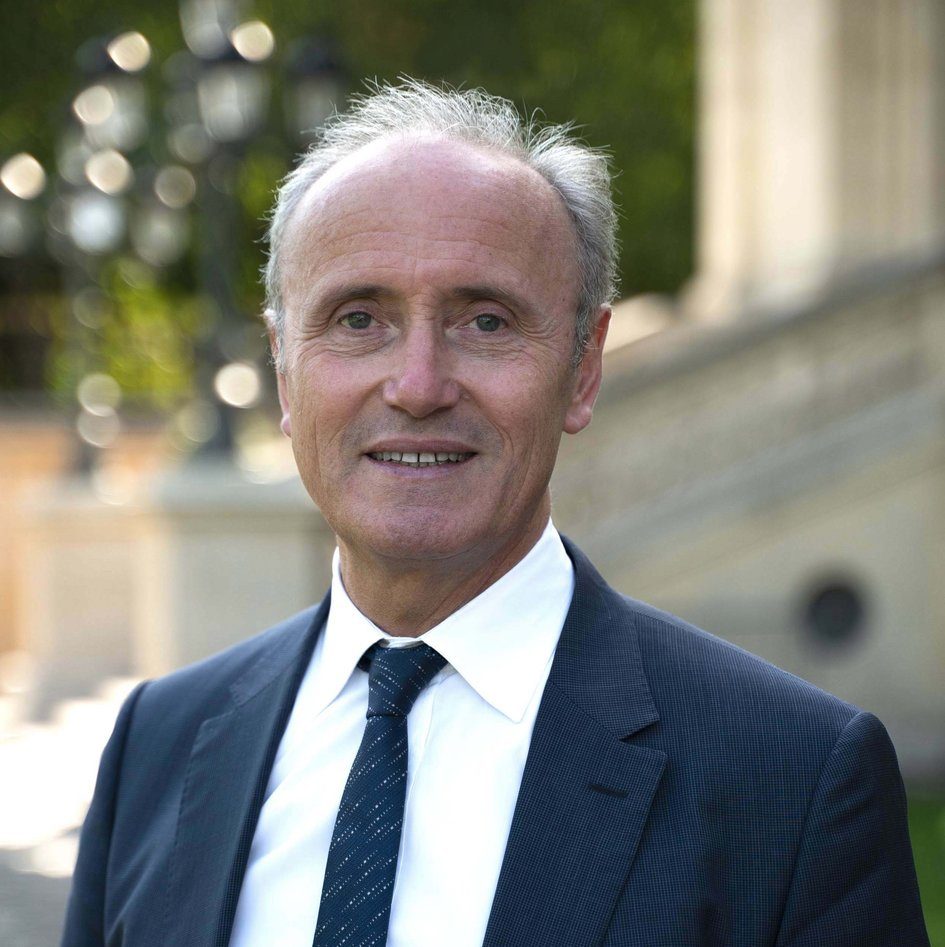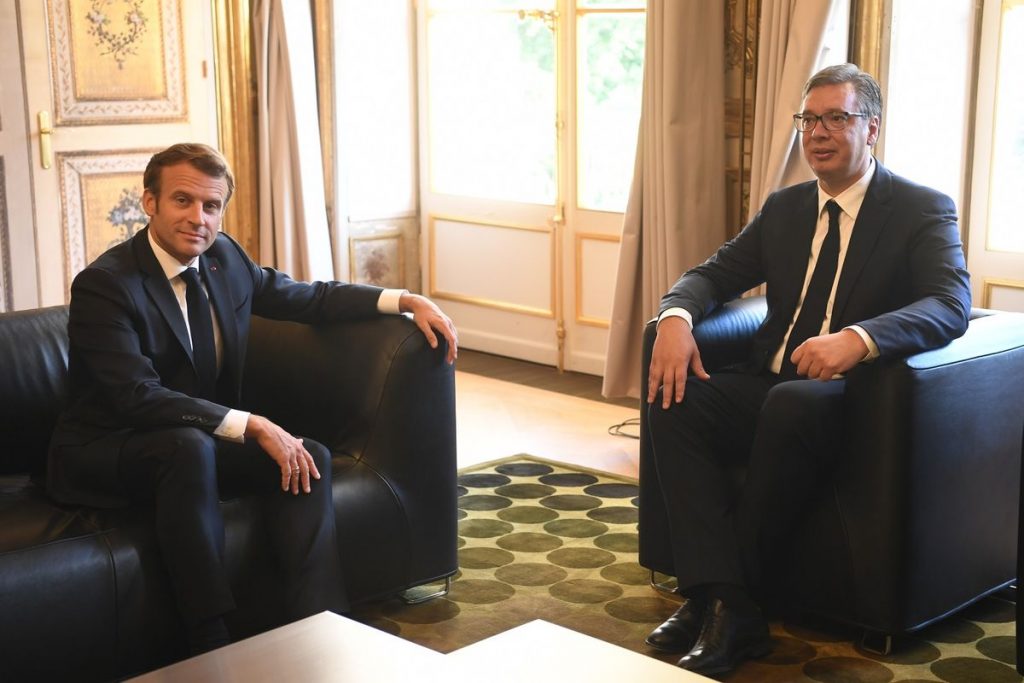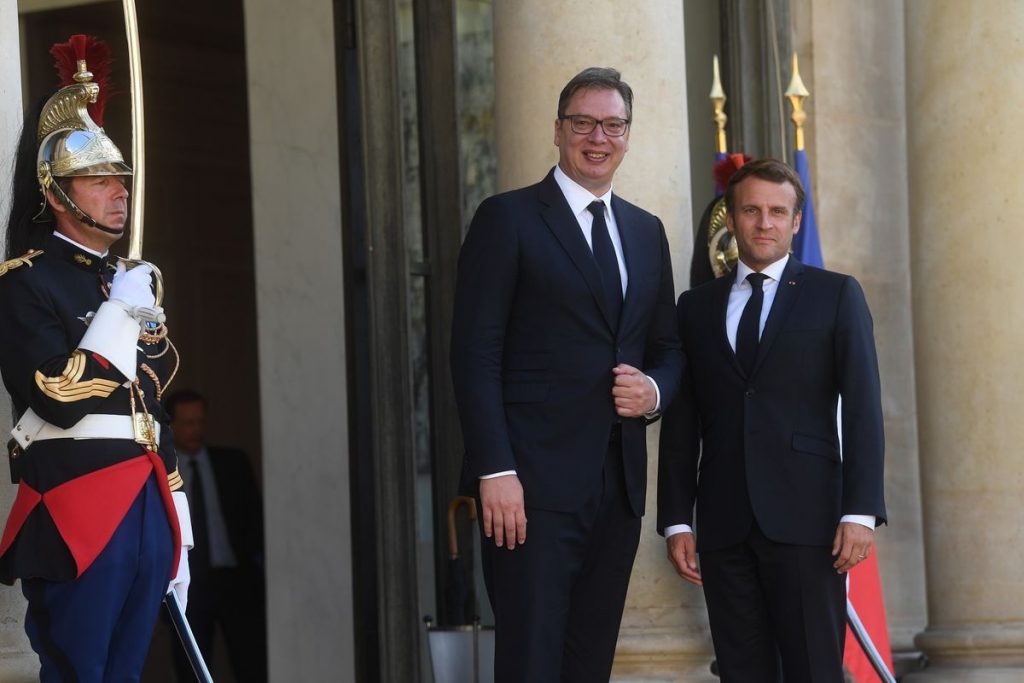It is a pleasure to introduce this “In Focus” special edition on France. The eve of 2021 is the perfect moment to take a look at what 2020 brought to our French-Serbian bilateral relations.
First of all, it seems impossible to speak about 2020 without mentioning the Covid-19 crisis, which was an unexpected blow for us all. If one lesson has to be learnt, it remains the value of multilateralism and international cooperation that France has been advocating for years: to keep people and goods flowing; to compensate, among EU countries, for the economic impact of the virus in a spirit of solidarity; to find scientific solutions, vaccines, against the epidemic; to make treatments available to all, in particular the poorest…

After a moment of shock when Europe was hit in March, a reflex of solidarity dominated in the EU and from the EU. The EU as well as individual member-states sent medical help as soon as it was technically feasible. The EU alone granted 93M€ in 2020 to Serbia in order to face the short and medium-term consequences of the Covid-19 epidemic. This was a crises response which came in addition to the regular funds that are granted through the Instrument for pre-adhesion assistance, i.e. 200 to 300M€ per year in average.
Despite the worrying epidemiological situation, Franck Riester, Minister for Foreign Trade and Economic Attractiveness visited Belgrade on November 26 to sign an intergovernmental agreement
Solidarity will also remain a key word in 2021: the European Union will continue to remain alongside Serbia to eradicate the SARS-COV-2 virus. Currently, Brussels and the EU-member-states are working on a solution to ensure that Covid-19 vaccines that arrive on our territory can also be available to the Western Balkans, in addition to the COVAX mechanism at a global level.
French-Serbian political relations remained very active during 2020, despite the lockdown. As an illustration of this goodwill at the political level, even in the midst of the sanitary crisis when borders were closed and flights suspended, let me remind that Serbian authorities and Air Serbia helped us organize several humanitarian flights from Belgrade to Paris. These gestures were unforgettable for those who safely reached their homes in these dire circumstances.
French-Serbian political relations remained at their highest level during all of this year, while both of our head of states were engaged in a fluid dialogue. President Aleksandar Vučić flew to Paris on 10-11 July 2020 in order to hold bilateral consultations with President Emmanuel Macron, ahead of the first high level meeting on Kosovo in 18 months, in presence of all of the relevant stakeholders. Both heads of states also spoke several times on the phone since, in sign of solidarity and to comment on current developments on the world stage.

This privileged relationship contributes to a positive bilateral atmosphere. Despite the worrying epidemiological situation in France and in Serbia, Franck Riester, Minister for Foreign Trade and Economic Attractiveness visited Belgrade on November 26 to sign an intergovernmental agreement on the development of strategic economic projects between our two countries. This document confirmed France’s commitment to financing projects in Serbia in the area of transports and energy in particular and endorsed Serbia’s choice of using French companies to carry out the first phase of the Belgrade metro project, as well as the automatic running of Serbia’s electricity distribution network.
This brings me to our cooperation in the field of economy. Beyond the important milestone which I just mentioned in the area of transports and energy, I am pleased to see that French companies remained committed to their projects in Serbia in all circumstances. It is for example the case of Suez-Itochu, which is carrying out the Vinča waste management project, as well as Vinci, which is actively working on the modernization of the Nikola Tesla International Airport of Belgrade. Broadly speaking, French companies are active or interested in developing their activities in Serbia. At this point in time, about 100 French companies are based here, employing about 12 000 workers. This being said, we are not sure yet how deeply the lockdown of the 1st semester impacted our bilateral trade. It was following, in 2019, a very positive trend, with over €1 billion-worth of trade. In the long run, I’m quite sure that the sanitary crisis will not impact this favorable tendency.
In 2021, we hope to remain as close as possible to all our friends and partners in Serbia who appreciate French culture, as well as the 100 000 children and adults who learn French
As a matter of fact, France should be more visible in Serbia, in the coming years, in the field of economy and sustainable development, thanks to new financing facilities brought upon, inter alia, by the French Agency of Development (AFD) which is based in Belgrade since September 2019 and active in the Western Balkans. AFD is particularly engaged in Serbia on environmental friendly projects, in the field of transport, energy efficiency and renewable. These projects, which we will most certainly promote next year, will pave the way for further EU-integration and compliance with its green agenda.

In the field of culture and cooperation, the pandemics forced us to switch on line and to adapt to the difficult circumstances. Luckily, there was a short window of opportunity in September and October, where various French artistic companies took part in high profile cultural events in Serbia, such as the Belgrade Dance Festival or the Belgrade International Theatre Festival. The French Institute of Serbia is also supporting debates and discussions on topics which are dear to us, such as EU-integration, environment, gender policy, etc. In 2021, we hope to remain as close as possible to all our friends and partners in Serbia who appreciate French culture, as well as the 100 000 children and adults who learn French. Among many other things: in March, stay tuned for the “Month of Francophonie”; we will also support and accompany Novi Sad a European capital of Culture 2021. French films will be casted all year long in cultural centres across the country and we will continue to ensure a French artistic presence in most major festivals of Serbia, provided this is compatible with the sanitary measures in place.
I’ll finish by reminding that France cannot be separated from the European Union and, in this regard, my country highly supports the EU-integration of Serbia, including through project-financing, short and long term expertise. Many observers noted that the EU-integration of the country was currently not speedy enough. I would like, for my part, to insist on the fact that this is not a fatality – when there is a will, on both sides, there is a way. A new government is in office since the end of October and has expressed the will to speed up the reforms that were agreed upon, including in the sphere of rule of law, which is crucial for further integration. I have a personal experience of EU enlargement policies, saw its ups and downs. I firmly believe that 2021, with the implementation of the new methodology of the accession process and the commitment on both sides at the highest level, will bring further progress in the integration process of Serbia to the European Union, in line with European standards and values.
A fluid dialogue between France and Serbia
French-Serbian political relations remained at their highest level during all of this year, while both of our head of states were engaged in a fluid dialogue. President Aleksandar Vučić flew to Paris on 10-11 July 2020 in order to hold bilateral consultations with President Emmanuel Macron, ahead of the first high level meeting on Kosovo in 18 months, in presence of all of the relevant stakeholders